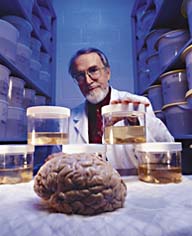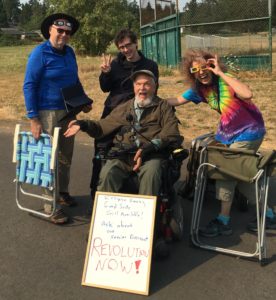Updated July 18, 2017:
US Senate Moving Now About Trump “Mental Health Czar” Appointee!

Dr. Ellie McCance-Katz, appointed by President Trump to an important mental health position.
I just heard that the US Senate, via Senator Lamar Alexander’s HELP Committee (Health, Education, Labor & Pensions), will be looking at this Trump appointee at the end of July, 2017. Hey that is right now!
There are many ways to influence this committee! They include Sen. Sanders, Warren, Franken, plus many Senators from States with activists (such as Wisc., Maine, Mass., Wash., Penn., Virginia, etc.). If you have a US Senator on this Committee, act now. If your US Senators are not on this Committee, please ask them to speak out today.
Since the bizarre attempt to gut the ACA is scuttled, this is a good time to speak out!
It may be too late to stop this appointment, but we could be asking some very good questions. We need to find out about Dr. Ellie McCance-Katz support for empowerment, recovery, peer support, alternatives, etc. But we should also find out about her understanding of the way psychiatric drugs are forced on people, hazards of long-term use, federal support for involuntary psychiatric drugging including on a outpatient basis, alternatives to psychiatric drugs, brain damage associated with neuroleptic drugs, electroshock, involuntary electroshock, and how involuntary outpatient procedures can and do include occasional court-ordered involuntary electroshock!
Below is the blog I wrote a few weeks ago about blocking this Trump appointee, and I have some questions listed. Let us ask some good questions right now, come on everybody!
Stop the Trump Appointee of a “Mental Health Czar”! At Least Ask Some Good Questions!
The nation and media debate Pres. Trump’s mental health. It is kind of a kick to watch Trump act nuts. Maybe it’s like driving past a car wreck on the highway. You vow to yourself to look away, but I look. Maybe you do too.
However, Pres. Cuckoo is distracting us.
Pres. Trump is “crazy like a fox.” The US Senate is quietly approving his first “Mental Health Czar.” Really!
You may have not heard about this controversy at all in the corporate media.
This “Mental Health Czar” appointment is moving below the radar of many people. In December 2016, the vast majority of Republican and Democrat congresspeople passed a huge and extreme mental health law for the nation, as part of the “21st Century Cures” bill.
Trump is Nominating New Mental Health “Czar”
As part of this new law, Pres. Trump has nominated a psychiatrist, Dr. Ellie McCance-Katz, for this first brand-new very-powerful position, widely considered “a mental health czar” of the USA.
While this process is not spoken about much in the media, the US Senate via Sen. Lamar Alexander’s committee, is supposed to ask her questions and decide about her confirmation. The formal title for this brand-new position is “Assistant Secretary for Substance Abuse and Mental Health Administration (Samhsa).”

Paolo del Vecchio heads the Center for Mental Health Services, a half-billion dollar agency within Samhsa.
If you are new to the US mental health world, you may not know that Samhsa is the huge federal agency that funds much of the mental health system. Just one of the Samhsa agencies is Center for Mental Health Services (CMHS), overseeing about a half-a-billion dollars annually, including many of the mental health consumer events such as the popular annual Alternatives Conference, the next one in Boston starts August 18, 2017.
CMHS is headed by Paolo del Vecchio, who has publicly identified himself as someone with “lived experience” of a mental health disability. Thousands of folks in our movement lead by mental health consumers and psychiatric survivors have met Paolo.
Now Paolo and CMHS find themselves in the middle of a strange and quiet battle.
For many decades, mental health consumer organizations in the USA have counted on the federal and state governments for their budgets. Only a few organizations have even tried to fund their budgets with donations, memberships, grassroots sales, and small independent grants.
It is difficult to explain to people how much advocacy organizations for mental health are under the control of the mental health industry. Imagine almost all the environmental groups in the USA, such as GreenPeace, getting their funding from the petrochemical industry. You might spot a problem here?
The Chickens Come Home to Roost
I have spent about 40 years working as a human rights activist in the mental health field. I am proud that when I directed MindFreedom International, for about 25 years, we raised our funds the old-fashioned way mainly through membership donations. Yes, we tried to maintain friendly relationships with industry-funded groups, after all they did some good.
Time for all mental health consumer and psychiatric survivor advocacy groups to raise part or all of their budgets in a more independent way.
The reality today is that many of the mental health consumer groups in the USA are funded by agencies that are headed up by the President, Donald Trump. In other words, the boss’s bosses’ boss of many mental health advocacy groups is Pres. Trump.
Hey President Trump:
“Before your mental health czar pushes for court-orders of any more Americans into forced outpatient psychiatric drugging, will you have a mental health check-up yourself?”
I have blogged previously about why this new position is so very dangerous. For example, after decades of new laws, on the state level, for court-ordered Involuntary Outpatient Commitment with involuntary psychiatric drugging (so-called IOC or as apologists call this violation, “Assisted Care”), this authoritarian practice is now partly-funded federally by US taxpayer dollars.
The US Senate should ask Dr. McCance-Katz about federal support and her backing for this forced outpatient psychiatric drugging.
That is correct, if you are an American taxpayer, some of your millions goes to forcibly drugging your neighbors in their own homes, using court orders. That might even sound like a good idea to some people, until someone suggests you yourself might be one of those to be under such a court order.
Rep. Tim Murphy (R-PA) is the only psychologist in Congress and for years he championed the bill that became 21st Century Cures. You may read articles about this topic over on Mad in America:
https://www.madinamerica.com/tag/murphy-bill/
Psychiatrist E. Fuller Torrey Gloats

Psychiatrist E. Fuller Torrey promotes court-ordered involuntary psychiatric drugging for millions of Americans. He is winning so many victories with Pres. Trump that he told NY Times “I feel like I died and went to heaven.”
Psychiatrist E. Fuller Torrey is widely considered one of the main opponents of our social change movement. This eccentric doctor seems to love the idea of forcing millions of Americans to take super powerful psychiatric drugs. According to a New York Times article on the nominations of Dr. Ellie McCance-Katz, Torrey told the NY Times recently, “I feel like I died and went to heaven . . . I honestly didn’t think I’d see something like this happen in my lifetime.”
Sure, we can debate the mental health status of Torrey and Trump, neither of whom appear to have gotten a mental health check-up.
Meanwhile, the US Senate should be asking some tough questions of Dr. McCance-Katz. Maybe the US Senate will approve her, but we Americans can at least ask about controversies such as:
- Does she support more forced outpatient psychiatric drugging?
- If so, how many Americans does she feel should get court-ordered drugging?
- Does she endorse the current use of federal money for this?
- Does she admit that court-ordered involuntary electroshock on an outpatient basis can be done?
- What is the long-term impact of psychiatric drugs?
- Why aren’t non-drug alternatives offered to Americans, including the millions of vets?
- And many other questions!
Difficult to Learn About the Senate Debate on Trump’s “Mental Health Czar”
When is the confirmation process in the US Senate? How do you submit questions to be asked? What criteria will be used? How can we ask about involuntary psychiatric drugs, and their impact on Americans?
The Mental Health Civil Rights Advocacy Subcommittee of the National Council on Independent Living (NCIL) holds a monthly teleconference, headed by Wisconsin disability advocate Mike Bachhuber. I’ve been on this Subcommittee for many years. Their most recent minutes, May 24, 2017, reflected a kind of despair about this process, to paraphrase:
“We discussed the nomination of Dr. McCance-Katz to Asst Secretary for HHS. The National Disability Rights Network (NDRN) said that it is done deal. Has support of Mental Health America (MHA). Dan Fisher says that groups will not fight because many get money from SAMHSA and fear retaliation. Instead it’s suggested that we pepper the committee with questions about individual voice of service recipients.”
Let Us Resist! Fight Back Now!
We can at least have a more transparent process about this US Senate debate of the first USA “mental health czar,” appointed by a US President with obvious severe mental issues.
What is the timeline? How can we get in questions?
Dr. Torrey may think he is in heaven, but I would like a revolution, now!
And in case you still had doubts that Pres. Trump has severe mental and emotional problems:
New York Times opinion writer Charles M. Blow recently wondered about Pres. Trump’s apparent “obsession” with former-Pres. Obama:
https://www.nytimes.com/2017/06/29/opinion/trumps-obama-obsession.html
I think it is pretty clear, from Pres. Trump’s denial of the climate crisis despite mounds of science, that he has severe and dangerous mental problems. In fact, I would argue that to exist, to live, we all have emotional problems. The challenge is to seek positivity and justice. Pres. Trump fails over and over in that pursuit. What an embarrassment, and what a risk especially to future generations.
But as Martin Luther King warned, beware the paralysis of analysis. The US Senate should be showing some bravery right now, and both of your US Senators should act.
Action: Contact Your US Senators, Now!
Each American has two US Senators. Call and email them now!
Simply say that you oppose the nomination by Trump of Dr. Ellie McCance-Katz for Associate Secretary of Samhsa. My blog from the Spring about this has more detail if you would like it:
http://davidwoaks.org/trump-appointee-mccance-katz-samhsa
Everyone should contact their US Senators.
Call both the DC and local offices. Learn the name of the main staff person who works on health.
Keep calling and emailing. Please post a copy of your US Senate note, on this blog, on Facebook, etc.
Why?
Ask anyone in the mental health field for a copy of their message to their US Senators. If they do not have a letter copy then you may be looking at a sell-out. Maybe a nice sell-out, but a very confused mental health advocate!
If you can do more, try to get some good questions asked by the US Senate during this process. You can leave comments here. Just now I phoned up the office of US Senator Lamar Alexander (R-TN), and the person who answered the phone was unaware of this controversy. Sen. Alexander heads the Senate Health, Education, Labor and Pensions Committee, which is supposed to be in charge of questioning Dr. McCance-Katz.
The Vast Majority of USA Opposes These Practices!
Note that both Republicans and Democrats widely supported this bill.
But both the left and the right have spoken out many times over the years against heavy-handed government psychiatric drugging.
For instance, did you know that the USA Libertarian Party actually had a plank, passed quite a number of years ago, against all forced government psychiatric drugging?
Did you know that several grassroots Republican activists have been key for bringing up psychiatric drugging of children? When foster kids get heavy-duty psychiatric drugging, all of us share the guilt.
This issue is far beyond the usual right and left split.
We need a revolution in the mental health system and in our society. Pres. Trump may seem “crazy” but the fact is that his wild, inappropriate, disrespectful antics get the spotlight, when we should be stopping the appointment of Dr. McCance-Katz and this nightmarish 21st Century Cures Act that Torrey’s group, Treatment Advocacy Center, calls “monumental.”
Let us not be distracted by the bizarre behavior of Pres. Trump. Oppose the US Senate confirmation of Dr. McCance-Katz, and at least let us ask some good questions. Keep your eyes on the prize.
Read More







